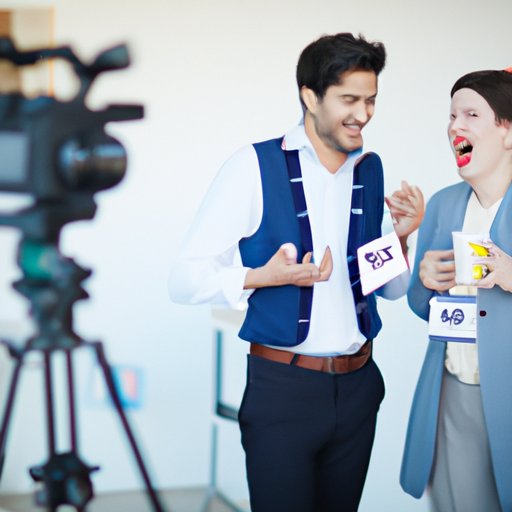Introduction
If you are interested in becoming a film production lawyer, it’s important to understand the qualifications and experience required, where to look for job opportunities, and effective networking strategies to increase your chances of success. In this article, we’ll explore how to get film production lawyer jobs by discussing the industry’s key requirements, job markets, networking strategies, and industry insights that will put you on the path to success.

Qualifications and Experience Required for Film Production Lawyers
Firstly, to become a film production lawyer, you will need to have a bachelor’s degree in law or a juris doctorate degree (JD), with a focus on entertainment law. Additionally, you should have some experience in the entertainment industry, which could be gained through internships or job positions that cater to the legal demands of the film industry. Familiarity with copyright, contracts, intellectual property and entertainment law is also key.
It’s important to note that the entertainment industry is very competitive, and having a generic law degree from a reputable law school may not be sufficient. Therefore, consider seeking specialized education or internships in entertainment law, to make your resume stand out from other candidates.

Where to Look for Film Production Lawyer Jobs
When it comes to job opportunities, you will need to research extensively to find open positions. Entertainment law firms, production companies, and studios are the most common employers of film production lawyers. However, thanks to the ever-expanding universe of streaming services, the film industry is growing rapidly and there are lots of off-beat employment opportunities.
For example, Netflix and Amazon Prime have opened editorial offices in Mumbai and Chennai, to create and distribute content in India. A streaming platform like Hulu, Disney+, or Prime Video also has a business development and acquisition team looking out for promising Indian content to bring to their viewers worldwide. Research into these areas of production may lead to new employment opportunities.
Networking Strategies
A successful job search requires more than just meeting the qualifications and sending applications. Networking is key to increasing your chances of getting employed. Attend industry events and connect with entertainment industry professionals on LinkedIn and other online platforms.
Joining professional organizations is another way to meet and connect with people in the industry. Consider joining the American Bar Association Forum on the Entertainment and Sports Industries, or the Entertainment Law and Intellectual Property Section of the Los Angeles County Bar Association if you are looking to work in the U.S.
Developing a Strong Resume and Cover Letter
Your resume and cover letter must showcase your qualifications, education, and experience in the film industry. Be sure to tailor your resume to cater to the specific requirements of the position you’re interested in. Emphasize experience you have gained through legal internships and focus on your educational background and exam marks. Be sure to review samples of film production lawyer résumés to get an idea of how to structure your application.

Interview Process for Film Production Lawyer Jobs
The interview process for film production lawyer jobs typically involves a screening interview and then subsequent follow-ups. During the screening interview, expect questions about your background, experience and qualification as a lawyer before getting into specifics related to the entertainment industry. Keep in mind that it is essential to dress smart and professionally during the interview. Bringing hard copies of your résumé, transcripts or any relevant references will further demonstrate your attention to detail.
Continuing Education and Staying Up-To-Date on Changes in Entertainment Law
Finally, continuing education will keep you current with the latest developments in entertainment law. Consider attending industry events and taking courses related to entertainment law, intellectual property, and similar subjects online. Doing this will establish your expert credential and provide additional knowledge of associated disputes and lawsuits. Follow industry organizations such as The Motion Picture Association to stay on top of the latest news, opportunities, and industry developments.
Examples of Successful Film Production Lawyers and Their Career Paths
Some examples of successful film production lawyers include Toby Emmerich, who is now head of Warner Bros., David Shaheen, who is a partner at O’Melveny and Myers, and Joel Katz, who is a partner at Greenberg Traurig, LLP. Each of these lawyers took different paths to success in the industry, but they all had a strong background in entertainment law and contacts in the film industry.
Conclusion
To succeed in the field of film production law, it’s crucial to understand the qualifications and experience required, where to focus your job search, and effective networking strategies to build connections in the industry. Developing a strong resume and cover letter, excelling during the interview process, continually educating yourself in entertainment law and making contacts will help you increase your chances of securing a coveted position in the entertainment industry and achieve your career goals.
